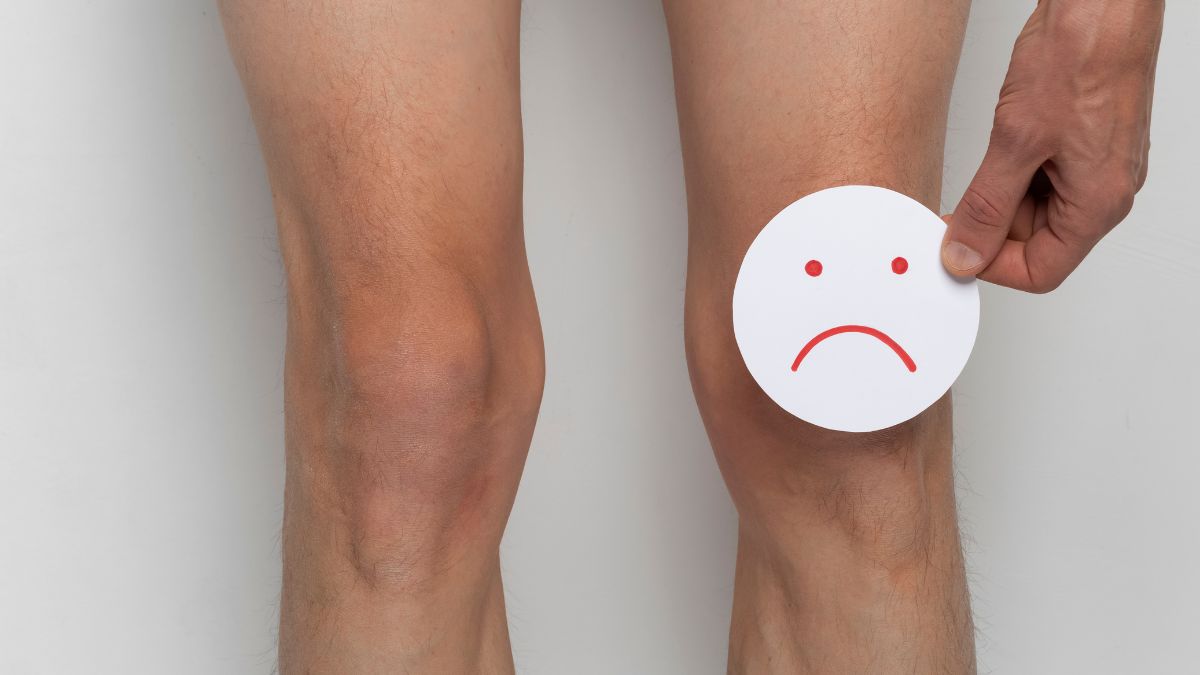- By Prerna Targhotra
- Fri, 20 Dec 2024 04:56 PM (IST)
- Source:JND
Creaky Knees: If your knees crack, pop, or grind when you move, you may be experiencing what is commonly referred to as creaky knees. These noises, medically termed crepitus, can sometimes be cause for concern, especially when accompanied by pain or swelling. While creaky knees might not always spell a serious problem, they at times hint at underlying conditions that require attention, such as arthritis.
In a conversation with Jagran English, Dr Ashis Acharya, Senior Consultant Orthopaedics and Sports Medicine unit, Sir Gangaram Hospital New-Delhi explained what creaky knees are and whether are they a sign of arthritis.
Why Do Knees Make Noise?
The knee joint includes bones, cartilage, ligaments, and synovial fluid all parts that provide for smooth movement inside the joint. When any one of these parts inside the joint undergoes wear and tear, or in case of misalignment, noises are produced. These sounds may occur due to:
- Air bubbles in synovial fluid: Popping noises may be the release of gas bubbles in the joint fluid during movement.
- Irregularities of cartilage: When the surfaces of cartilage become rough or damaged, they may make grinding or clicking sounds.
- Tendon motion: The clicking can be due to the snapping movements of tendons over a bony structure.
Is It Linked with Arthritis?
Creaky knees can be an early sign of arthritis particularly a type called osteoarthritis, in which cartilage that cushions the joints breaks down over time. On the other hand, not all knee noises translate to arthritis.
A study published in the Journal of Orthopaedic Research says that noisy knees if associated with frequent episodes of crepitus and pain, can increase the risk of knee osteoarthritis. However, if the crepitus is not accompanied by other symptoms, such as stiffness or swelling, it may not be a serious health concern.
While occasional knee noises are generally harmless, you may need to consult a healthcare professional if you experience:
- Persistent pain or swelling in the knee.
- Difficulty performing daily tasks such as walking or climbing.
- Feeling of instability or even locking in the joint of the knee.
Creaky knees are always better to be seen by an Orthopaedic specialist, especially when they hold you back in your day-to-day activities. The doctor will, thereafter, be able to assess these symptoms of yours and may consider diagnostic tests or treatment against the disorder. Early management can avoid the possibility of complications that may arise along with an assurance of maintaining good joints.
Creaky knees are sometimes a common experience, and though they may not necessarily lead to arthritis, it is yet another reason to look after your symptoms and help you continue with your everyday life with the best quality.
ALSO READ: Osteoarthritis vs Rheumatoid Arthritis: Expert Explains Key Differences And Treatment Approaches
ALSO READ: Why Winters Are Nightmare For Arthritis Patients? Doctor Lists Tips To Manage Worsening Pain
